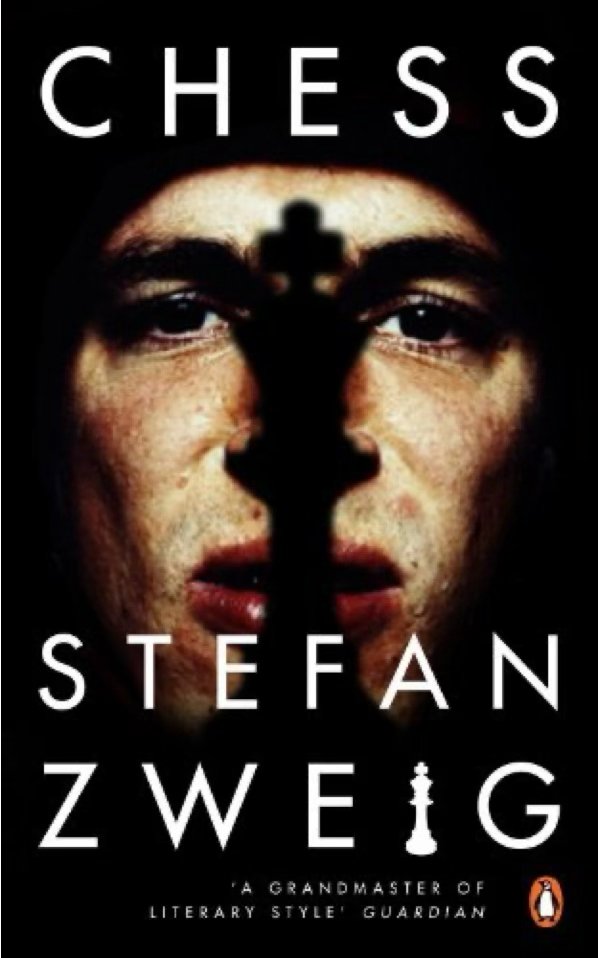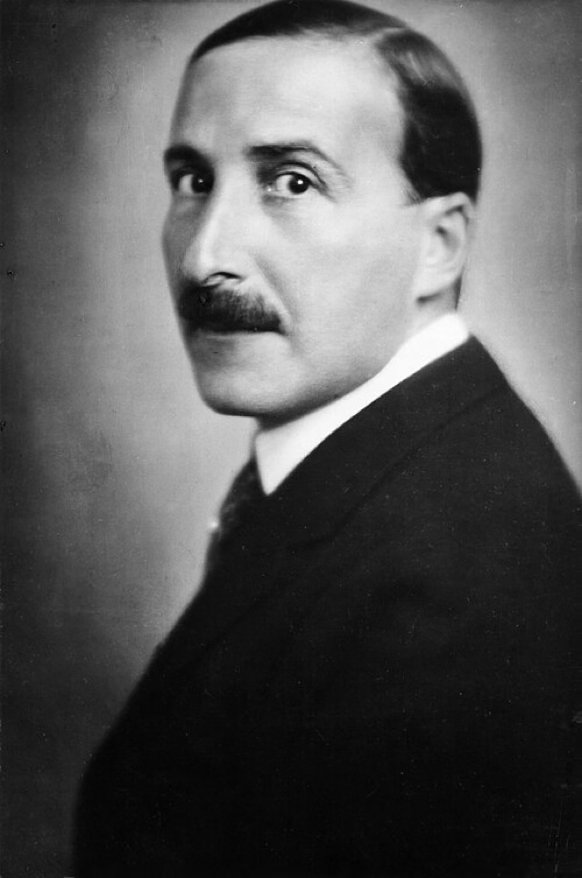
CHEES
(Source: www.amazon.com.tr)
Stefan Zweig (1881-1942) was an Austrian writer. His mother was a daughter of a Jewish banking family, and his father was a wealthy Jewish textile manufacturer. Zweig studied philosophy at the University of Vienna, and earned his doctoral degree with his thesis on ‘The Philosophy of Hippolyte Taine’.
Zweig was a well-known writer in the 1920s and 1930s. His output included fiction, biographies, historical texts, plays and his autobiography. He was forced to exile with the rising of the Nazi regime. He first emigrated to England, then to the US, finally settling in Brazil in 1940. He loved the country, but stricken with hopelessness regarding the future of Europe, committed suicide with his second wife, soon after completing his autobiography, and a year after completing the novella ‘The Royal Game’, sometimes also translated as ‘Chess’. A sagittarius.
The narrator is about to board a ship leaving New York to Buenos Aires. He finds out that a Mirko Czentovic is also on board, a chess player who has suddenly risen to fame, but besides chess, acts as an idiot in his private life. Narrator, intrigued, coaxes a rich man on board to pay Mirko for a round of chess.
During the second round of the game, a mysterious man interrupts them with his tactics, and causes a draw. We learn that he taught himself chess from a book he chanced upon while he was imprisoned and psychologically tortured by the Gestapo, eventually leading to his obsession with the game causing him mental instability. Mirko and this Dr.B. play a round of chess, and Dr.B. wins. However Mirko has discovered that B’s weakness is impatience, and in a second round uses this against him, causing B to lose himself, make a mistake, and withdraw. Mirko pitifully comments that Dr.B. was actually doing fine despite being an amateur.
Mirko’s success against other intellectual and creative chess players is accredited to his cold and relentless logic, and the narrator also attributes it to him being a ‘monomaniac’:
‘I have always been interested in any kind of monomaniac obsessed by a single idea, for the more a man restricts himself the closer he is, conversely, to infinity; characters like this, apparently remote from reality, are like termites using their own material to build a remarkable and unique small scale version of the world’.
In a simple reading, it is the story of a game, where an idiot wins by confusing the experts or the intellectuals, beating them at their own game. A term proposed by Douglas Adams in his book, ‘The Meaning of Liff’ comes to mind: ‘Aboyne (vb.): To beat an expert at a game of skill by playing so appallingly that none of his clever tactics or strategies are of any use to him.’ It is possible to see the bitter face of arrogance in defeat in Zweig’s description of Mirko: ‘So it was that their illustrious gallery of chess grandmasters, who unite in their ranks all kinds of intellectual superiority, who are philosophers, mathematicians, whose natures are calculating, imaginative and often creative, found their company invaded for the first time by a complete stranger to the world of the mind, a stolid, taciturn, rustic [youth].’

(Source: www.wikipedia.org)
It is possible he likens Mirko to Hitler and his regime, and forsees the defeat of people against his will. This could be seen
as a pessimistic view, or it could have been meant as a warning for readers- an alarm to wake people up to the dangers of the Nazi regime. Zweig’s pessimism probably stems from thinking the ‘game’ we play here on earth is like chess. But it isn’t- because unlike chess, there is chance involved: As put by Updike in ‘Brazil’: ‘At the heart of our lives lies a supernatural leap, an oscillating unlikelihood’. Or maybe if Zweig had chanced upon Clausewitz, and read: ‘[From] the outset there is a play of possibilities, probabilities, good and bad luck, which spreads about with all the coarse and fine threads of its web, and makes war [like] a gambling game’.
In life there is not only black and white, but a myriad of grays. Yet, in the black and white fictional world of Zweig, Dr.B. accepts defeat, and Zweig accepts it in real life. In his suicide note he says he loves Brazil, and how it embraced them, but to start everything anew after 60 years of age requires strength which he no longer has. So as Mirko comments at the end, victory for Dr.B. was a possibility, but he chose to quit.
Zweig portrays Mirko’s success as depending purely on his cold logic, but he seems to be undermining or misreading his own anti-hero. Mirko wins because he observes and finds his opponent’s weakness, and plays on that. So in a way, Mirko is really playing against Dr.B., but Dr.B. is playing against himself- his own demons, and is unable to defeat himself. If he were really in the game, acknowledging his opponent, he would have had a chance at winning. So in a sense here Mirko is not really the apathetic one, but Dr.B. is. This could be because Dr.B. only played chess with himself in real life, while Mirko has played with real people. In a way, in this story, real life experience beats theory- not necessarily a cold, calculating opponent beating a sensitive, intellectual one. So maybe Zweig’s own nightmares were not mostly of the Nazi regime.
The book was an easy read, a page turner almost, however the ending was almost a sudden anticlimactic screech of the tires. Characters and the plot lacked depth and life, a problem beyond its shortness. I also obviously have a problem with its pessimism, but it could have been fine, read as a reality of life, if this novella were stronger in its other aspects.
‘My dreadful situation forced me at least to try splitting myself into a Black self and a White self, to keep from being crushed by the terrible void around me.’
‘I have always been interested in any kind of monomaniac obsessed by a single idea, for the more a man restricts himself the closer he is, conversely, to infinity; characters like this, apparently remote from reality, are like termites using their own material to build a remarkable and unique small-scale version of the world.’
Author: Stefan Zweig
Translator:-
Title: Chess
Published: –
Pages: –
